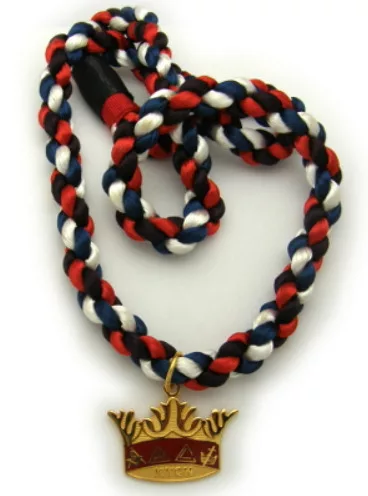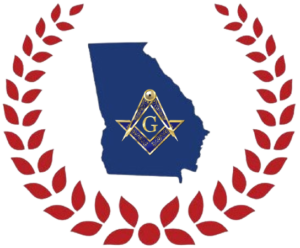OFFICERS 2023-2024

| Eminent Prior | Larry Q. Hall | lqh39@comcast.net |
| Deputy Prior | Earl T. Myers, Jr. | etmyersmail@aol.com |
| Warder | Raymond G. Bagley, Jr. | bagman1@frontiernet.net |
| Registrar/Treas. | C. Danny Wofford | Past Prior |
| Prelate | Louis E. Starniri | starniriwb@rcn.com |
| Orator | C. James Wilson | cjwilson32@gmail.com |
| Herald | Lynn E. Shields | Lshields7@comcast.net |
| Representative | Wayne C. Faupel | wfaupel@yahoo.com |
Officers of a Priory of the KYCH
The basic organizational unit of the Knights of the York Cross of Honor (KYCH) is the Priory. The officers of the Priory are the Eminent Prior, Deputy Prior, Warder, Treasurer, Registrar, Prelate, Orator, Herald, and Sentinel.
The Eminent Prior is the chief officer of the Priory and is equivalent to the presiding officer in any other body of Freemasonry or concordant body. This officer carries the honorary title of Eminent which is rooted in the Latin word “eminentem” meaning “standing out, projecting, prominent, or high.” A Prior is a traditional title used to represent a monk or priest who is the head of a religious house or order. This rank is below that of the abbot. Prior comes to us from the Latin tongue and is used to mean “former, previous, first, etc.” from which it was used figuratively as “superior (in rank), forefather, and better.” The KYCH is a Christian knighthood and the title presiding officer was commonly used by some among the medieval knighthoods.
The Deputy Prior is the second-in-command of the Priory, assists in the opening and closing of the Priory has a ritualistic part in the initiation of new Knights, and assumes the duties of the Eminent Prior in his absence. This officer carries the title of “Deputy” which is rooted in the Latin words “de” and “putare” which combined means to “to cut away or purne”, but adopted in Anglo-French words meaning to “appoint or assign”
Third-in-command of the Priory is the Warder. It is interesting to note that in the Commandery of Knights Templar, the Warder is a junior appointed officer, but in the Priory is an elected official and has a part in the initiation ritual. The word “Warder”, like Warden, comes from the Proto-Germanic word “wardon” meaning “to watch or guard.”
The Treasurer and Registrar correspond to the Treasurer and Secretary (or Recorder) in other Masonic bodies. In some Priories, these two officers are combined and held by one Knight. This is often done in smaller Priories, but to counter any possibility of bad book-keeping, the Prior is required to assign a Finance Committee whose job it is to examine the records of the Priory and ensure all is in proper order.
Corresponding to the Chaplain in the Lodge, the Prelate is the spiritual leader of the Priory. A Prelate is traditionally a high ranking member of the clergy and the word is derived from the Latin word ‘prelatus’ referring to a clergyman of “high rank or of preference over others.”
There is no Orator known in the Blue Lodge or in the York Rite bodies, but in the Priory, the Orator is an appointed officer whose entire job is to announce the four Knights who will give the four lectures during the initiation ritual. An orator is a public speaker, often known for their eloquence. The word “orator” comes from the Latin word “orare” meaning “to speak.”
The Herald is the first appointed officer within the door of the Priory and has duties similar to the Junior Deacon and Marshall within the Blue Lodge. A Herald was traditionally an officer who conveyed messages or proclamations as well as acted as diplomats or ambassadors for monarchs. This word derives from the old French word ‘heraut’ meaning “messenger or envoy.”
The final appointed officer of the Priory is called the Sentinel and whose duties correspond with that of the Tyler in the Blue Lodge. The Sentinel guards the Priory from without the door to ensure the Knights are not caught or taken by surprise by those wishing to cause harm or those who are not entitled to be there. The Sentinel is one who stands guard over some kind of structure, whether it be an installation, a gate, or a passage. It is their job to prevent intrusion by enemies or those unauthorized. The word Sentinel stems from the Latin word “sentire” meaning “to watch or perceive by the senses.”


